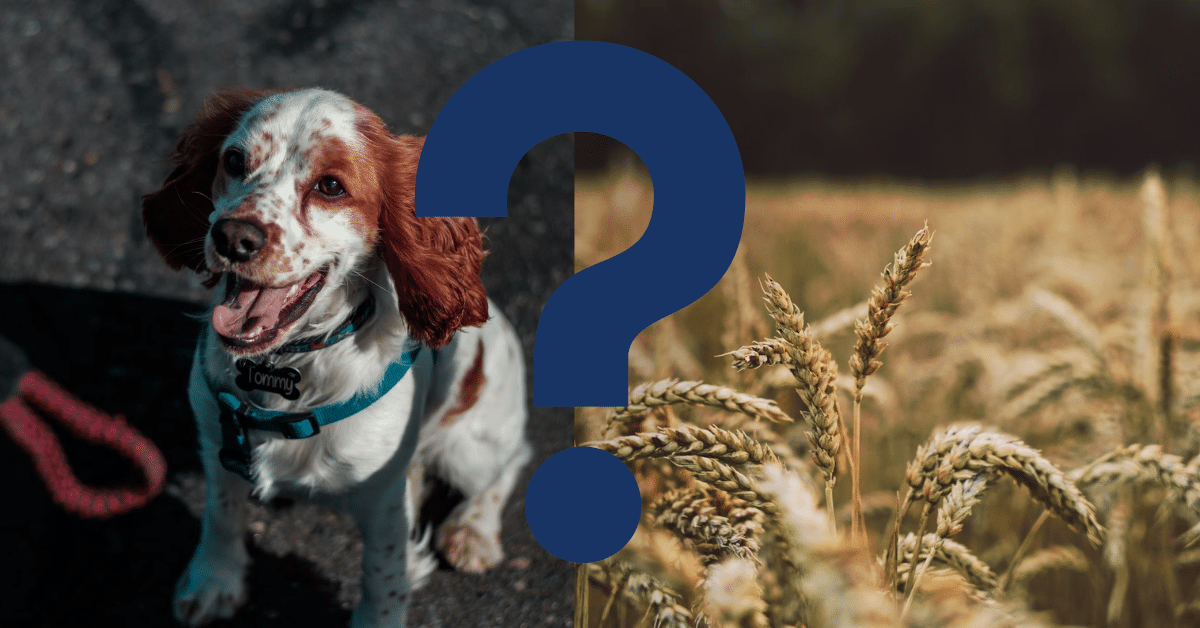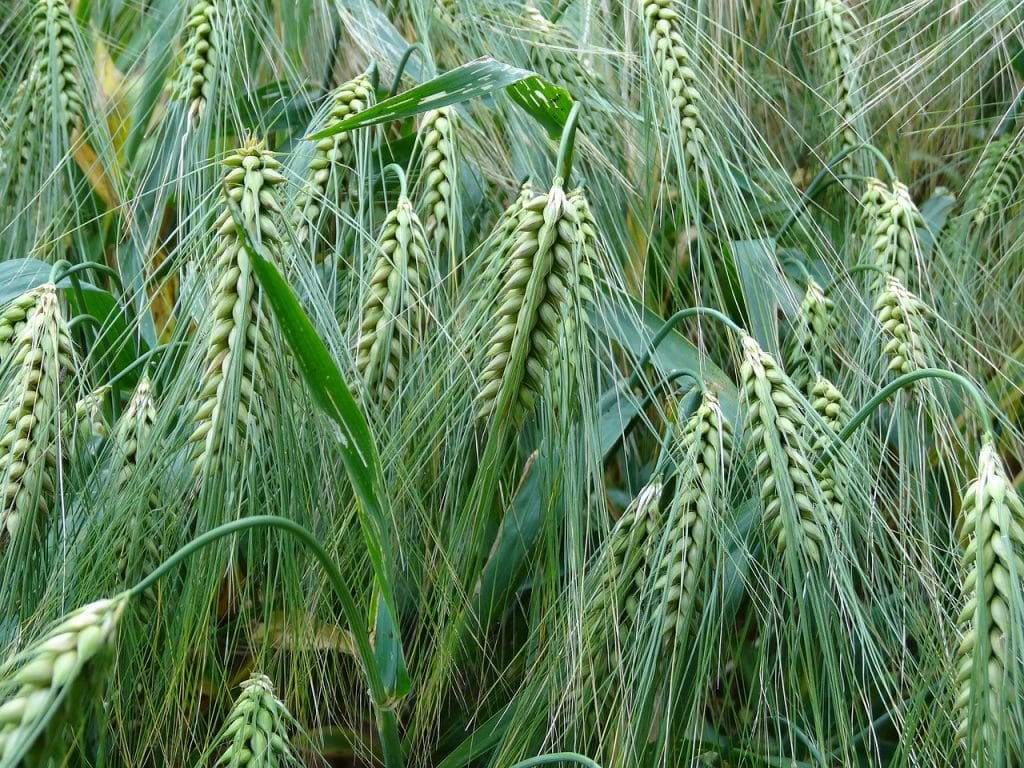Can Dogs Eat Barley? A Vet’s Opinion

Barley is a versatile cereal grain that is used in a variety of foods and beverages. It is high in fiber, vitamins, and minerals and is commonly used in soups, stews, and animal feed. But can you feed barley to your dog?
In moderation, dogs can consume barley. Barley is a healthy whole grain that can be added to a dog’s diet. It contains fiber, vitamins, and minerals. However, it must be cooked entirely for dogs to digest it. They may have difficulty digesting raw barley. Before introducing new foods into your dog’s diet, consult a veterinarian to confirm they are safe and appropriate for their unique health needs.
Benefits of barley for dogs
When added to a dog’s diet, barley can provide various benefits:
Nutrient-Rich
Barley is high in fiber, vitamins (B-complex vitamins including niacin and riboflavin), and minerals (iron, magnesium, and selenium). These minerals may help your dog’s general health.
Digestive Health
The fiber in barley can help with digestion and bowel movement regulation. It can help dogs with constipation and diarrhea and promote improved gastrointestinal health.
Weight Control
Barley is low in calories but abundant in fiber, which helps make dogs feel full and content. It can help with weight management and reducing overeating.
Blood Sugar Stability
Compared to other cereals, barley has a lower glycemic index. It can help stabilize blood sugar levels, especially for diabetic dogs or those with blood sugar variations.
Heart Health
Because barley contains soluble fiber, it may help lower cholesterol levels, potentially lowering dogs’ heart disease risk.
Energy Source
The carbohydrates in barley provide a consistent source of energy for dogs, making it a good choice for energetic dogs or those that require more energy.
Allergen Alternative
Compared to common allergenic grains like wheat and corn, barley is less likely to trigger allergies or sensitivities in dogs, making it an intelligent choice for dogs with food sensitivities.
Dental Health
Eating barley requires chewing, which can benefit dental health by minimizing plaque and tartar buildup.
While barley has many advantages, it is critical to introduce it gradually into your dog’s diet and speak with a veterinarian to confirm it is acceptable for your dog’s needs and dietary requirements. Also, because raw barley can be challenging to digest, properly prepare it before feeding it to your dog.

How to safely give barley to dogs
Careful preparation and monitoring are required to incorporate barley into your dog’s diet safely. Here’s a step-by-step procedure:
Consult Your Vet
Consult with your veterinarian before introducing new food into your dog’s diet. They can examine your dog’s health requirements and tell you whether it suits your pet.
Select Whole Barley
Choose whole, unprocessed barley over pearled or hulled barley. Whole barley contains more nutrients and fiber, suitable for your dog’s health.
Cook Thoroughly
Raw barley might be difficult for dogs to digest. Cook it in water until it is mushy and easily chewable. Seasonings, spices, and salt should be avoided because they might harm dogs.
Portion Control
Begin by giving your dog tiny amounts of cooked barley. Keep an eye on their reaction and make sure they tolerate it well. If no adverse effects occur, gradually raise the serving size over a few days.
Mix With Regular Dog Food
You can mix cooked barley with your dog’s regular commercial dog food. It can offer variety to their diet while providing barley’s advantages without completely replacing their principal food source.
Monitor
When introducing barley to your dog, closely check his digestion. Some dogs may initially experience moderate gastrointestinal discomforts, such as flatulence or loose feces. Consult your veterinarian if these symptoms persist or worsen.
Food Allergies And Sensitivities
If your dog has a history of food allergies or sensitivities, proceed with caution when introducing barley. While it is less allergenic than certain other grains, it is still possible for some people to be sensitive to it.
Avoid Flavoured Or Seasoned Barley
Please do not give your dog flavored or seasoned barley foods intended for people because they may include components toxic to dogs, such as onions or garlic.
Moderation Is Key
Barley should be used in moderation and not as your dog’s sole source of nourishment. Make sure dogs have a balanced meal that fits their nutritional demands.
Check-Ups At The Veterinarian
Continue to evaluate your dog’s health and food. Regular check-ups with your veterinarian can help ensure your dog’s dietary demands are satisfied and any potential problems are addressed as soon as possible.
In conclusion, barley can be a nutritious addition to your dog’s diet when prepared and introduced carefully. Always put your dog’s health first, and visit a veterinarian if you have any questions regarding their nutrition or health.
Will barley make a dog sick?
While barley is generally considered safe when prepared and introduced appropriately, some dogs may experience unfavorable reactions. If barley is not suitable for your dog, the following concerns may arise:
Digestive Upset
Barley contains dietary fiber, which can cause gastrointestinal distress if consumed too rapidly or in large quantities. It can cause gas, bloating, or diarrhea.
Allergic Reactions
Although barley is less likely to cause allergies in dogs than other grains, it is still possible that your dog is allergic to it. Itching, skin irritation, hives, and stomach disturbance are all allergic reactions.
Pancreatitis
Dogs with a history of pancreatitis or those predisposed to it may experience increased symptoms if they ingest significant amounts of high-fat barley foods.
Obstruction
If your dog consumes uncooked or incorrectly prepared barley (e.g., whole raw barley), there is a danger of gastrointestinal obstruction, which can be fatal. Always make sure your barley is well-cooked and safe to eat.
Calories
Like other cereals, barley has calories. Feeding your dog too much barley without altering their overall diet can result in weight gain or obesity.
Bacterial Contamination
If barley or barley-based dishes are not properly stored or handled, there is a risk of bacterial contamination, which can cause food poisoning.
Diabetes Management
While barley can help stabilize blood sugar levels in some circumstances, it may not be appropriate for all dogs, particularly diabetic dogs. Consult with your doctor to establish the best diabetic dog diet.
Before integrating barley into your dog’s diet, talk with your veterinarian to reduce the risk of these potential complications. They can examine your dog’s health needs and advise you on the amount and preparation of barley that is best for him. In addition, always introduce new meals gradually, regularly watch your dog’s behavior, and seek veterinary advice if you observe any adverse effects.
Can Dogs Eat Barley Variations?
Dogs can eat a variety of barley recipes as long as they are adequately cooked and do not contain any dangerous additions or flavors. Here are some examples of typical barley varieties that can be fed to dogs:
Cooked Barley
Plain, well-cooked barley is generally safe for dogs and can be incorporated into their regular dog food to provide additional nutrition.
Soup With Barley
Barley can be used in homemade dog-friendly soups. Ensure the soup contains no hazardous dog elements, such as onions or garlic.
Barley And Vegetable Mix
A nutritious side meal for your dog can be made by combining cooked barley with dog-safe veggies such as carrots, peas, or green beans.
Homemade Dog Treats With Barley
Some dog treat recipes include barley flour or cooked barley as an ingredient. These treats should be produced with dog-friendly ingredients and baked to ensure your pet’s safety.
Barley-Based Dog Food
Barley is a primary or secondary component in several commercial dog meals. These items are designed to suit the nutritional requirements of dogs and are generally safe to consume.
Barley Risotto (For Dogs)
To make a dog-friendly version of barley risotto, simmer barley with basic broth and dog-safe veggies, leaving out any flavors or substances that may be toxic to dogs.
When introducing new foods into your dog’s diet, proceed with caution. Begin with little quantities to see how your dog behaves, then progress to more significant portions. Also, ensure the barley variants you offer don’t contain poisonous components to dogs, like onions, garlic, or too much salt. Also, contact your veterinarian if you have concerns about your dog’s nutritional choices or unique health needs.

Vet’s Summary
The article covers the advantages of including barley in a dog’s diet. It emphasizes that barley is a nutrient-dense whole grain that may be a nutritious addition to a dog’s diet when appropriately prepared. Barley contains essential dietary fiber, vitamins, and minerals that support digestive health, weight control, stable blood sugar levels, and overall well-being. It emphasizes the significance of visiting a veterinarian before introducing new foods, such as barley, to ensure they are compatible with the dog’s specific health requirements.
In any event, dog owners should consider adding probiotic pills to their pet’s diet. Probiotics are critical for maintaining a healthy balance of intestinal flora in dogs, which is necessary for digesting and overall immunological function. Even though barley has numerous health benefits, some dogs may experience slight stomach discomfort when introduced to new meals. Probiotic pills can help with the transition by encouraging healthy gut microbiota, lowering the risk of digestive disorders, and improving nutritional absorption. However, it is critical to contact a veterinarian to establish the best probiotic supplement and dose for your dog’s needs. Probiotics are perfect for dogs with a history of digestive issues or undergoing dietary changes.
Videos to watch
If you are wondering what related foods are good to give your dog, watch this:
And if you want to know what a dog can NOT eat, watch this:






